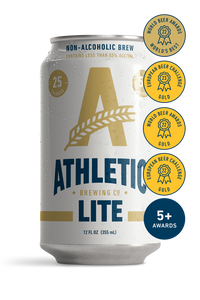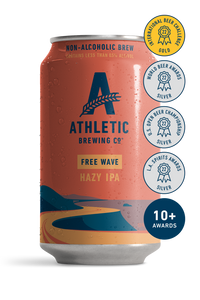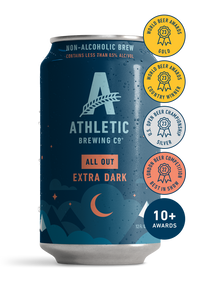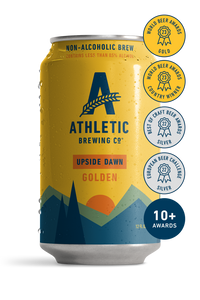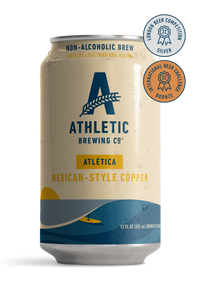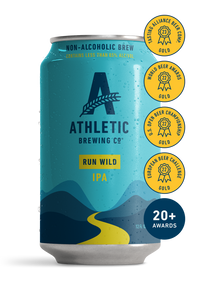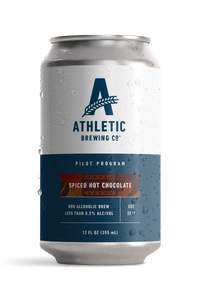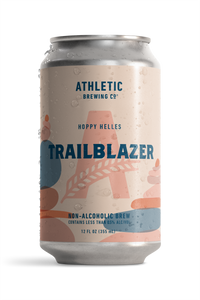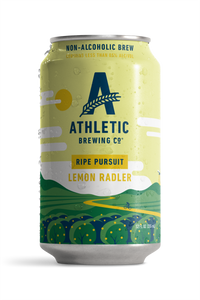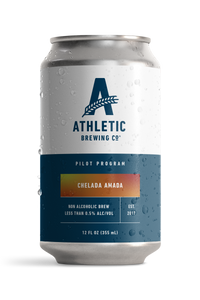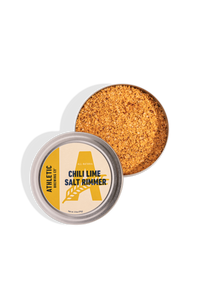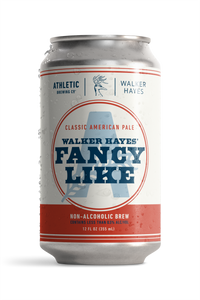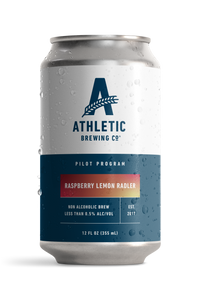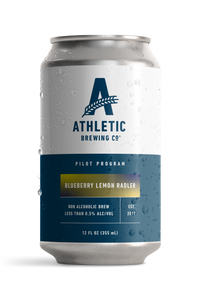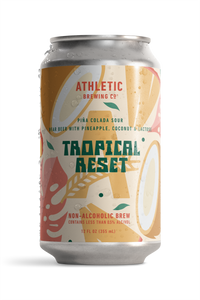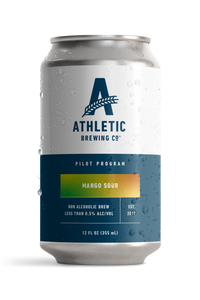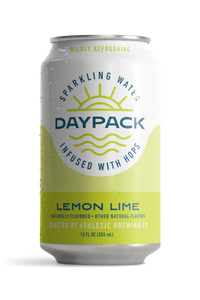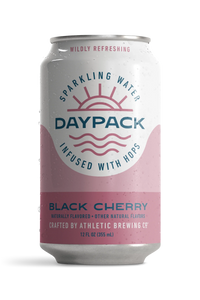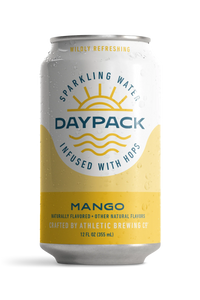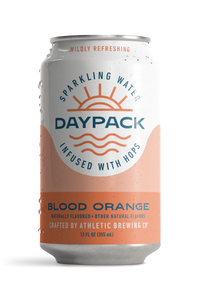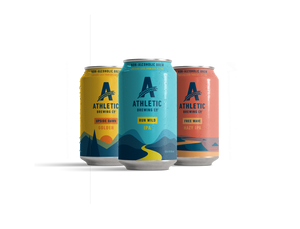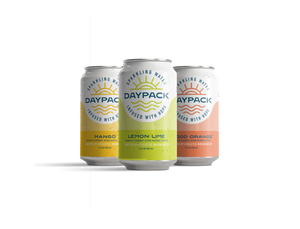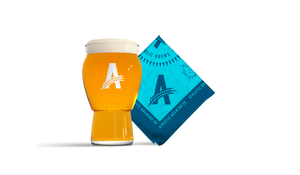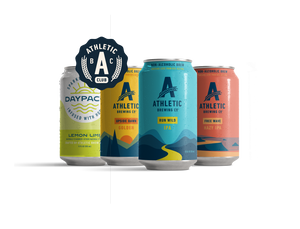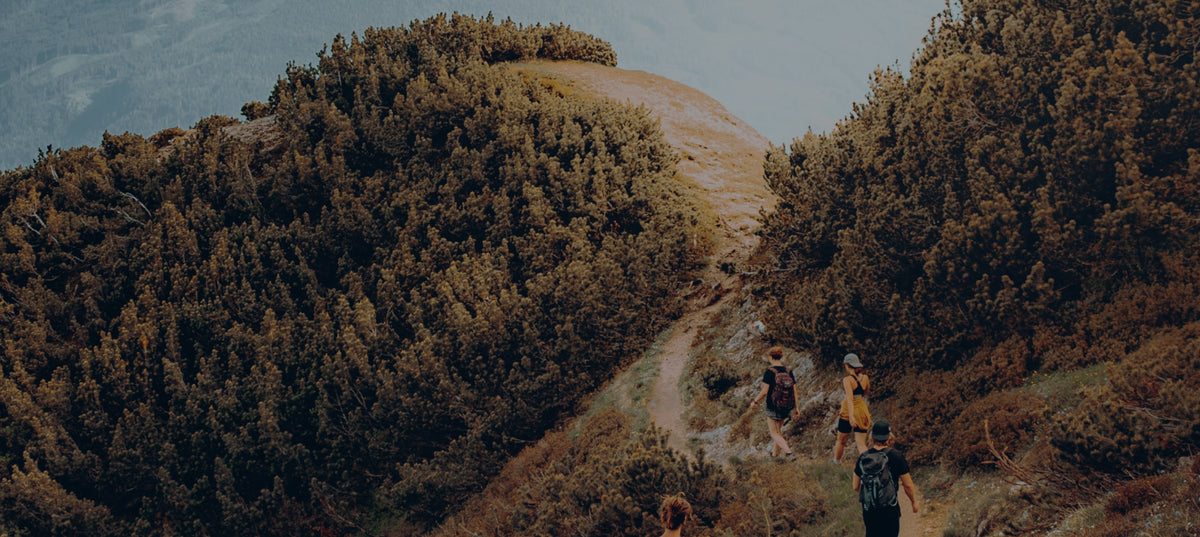“I hope that [young girls] look at us and are like, ‘Those are some badass women. I hope to be as badass as them.’ I hope that they see that they can do it too and that they know that it is OK to be confident, and to have a strong body. And I hope it gives them confidence to passionately pursue their goals.”
Brittany Bushman has always been drawn to sports.
Throughout her life, they were where she felt most comfortable and welcomed, along with the space to push herself to become better both on and off the field.
Now, not only has she grown her career on the football field as a professional quarterback for the Texas Elite Spartans, but she also is bringing that passion and excitement to a younger generation as an educator and coach.
“Growing up I never felt like I had a coach that really invested in me and encouraged me to continually pursue my goals,” Brittany says. “Now that I’m older, I want to be that coach for somebody. I want my athletes and my students to know that I’m there for them, I believe in them, and just to have a positive impact on their lives. I feel like I'm giving back to society in a really positive way, and that brings me joy.”
Brittany discovered her love of football during high school, playing on the team as the only woman, but she didn’t discover women’s professional tackle football until she was in college. During tryouts, she didn’t get the position she wanted at first, but through perseverance and dedication, she earned her way into the quarterback role.
Since then, she’s accumulated plenty of accolades, being named MVP and leading her team to the national championships, along with bringing home gold internationally as well. She’s also watched the league grow from being relatively unknown to now being supported by huge sponsors like adidas.
Through all of its growing pains, though, Brittany says she’s so honored to be playing the game she loves with so many incredible women – and is also honored to inspire the next generation of female football players to take this sport to an even higher level.
“I hope that [young girls] look at us and are like, ‘Those are some badass women. I hope to be as badass as them.’ I hope that they see that they can do it too and that they know that it is OK to be confident, and to have a strong body. And I hope it gives them confidence to passionately pursue their goals …”
Read on to learn more about Brittany’s story and the Women’s National Football Conference.

Tell me a little bit about yourself, and how fitness and sports came into your life.
Growing up, we were outside playing anything and everything. I was always running around the neighborhood playing whatever game it was, like wiffle ball, tackle football. I just always wanted to be outside.
As I got older and organized sports came into the picture, I signed up for rec stuff until about fourth grade, and that’s when organized pee-wee football came into play. I was also playing little league, basketball, all of those things – I just loved it. It’s always been my passion and where I felt most welcomed.
As I got older, I asked myself: Do I want to do this, play college-level athletics? I started focusing more on my training and taking care of my body. I always loved working out. I always loved competing. I loved being on a team. And I just continued to develop my skills and abilities throughout the years.
I’m grateful I was able to go play college-level basketball, and it was during college that I found women’s football. I never thought that I was going to play football again after my senior year in high school, so to find women’s football – it’s been my joy for the past couple of decades. I love it.

How challenging was it to play football in high school?
I was the only female on the football team all the way through high school and earned my varsity letter my junior and senior year. There were a lot of challenges being the only female. Not only was I trying to prove my worth on the field to my teammates and coaches, but socially it was difficult. People didn’t understand why I would want to put myself in that position of possibly getting hurt in a real physical game like football. But it’s been my favorite sport forever, and it was worth all of those things that I kind of gave up socially.

You are a professional athlete with the Women’s National Football Conference (WFNC). What does the path to becoming a professional football player as a female look like?
I found out about the women’s football league while I was in college. I was randomly throwing a football at my brother’s youth game, and there was a woman there who had played on one of the women’s teams [in Texas] who said I had a great arm and that I needed to try out. I didn’t really know what she was talking about, but she started telling me about women’s football and I was blown away. I was so happy. I couldn’t wait to get online and figure out when the season was and when tryouts were – the whole thing.
I tried out as a quarterback because that’s what I played in high school. I thought I did really well, but at that time, they had a quarterback for that season, and unfortunately I wasn’t given the opportunity to really compete for that position. So I ended up as a running back. I really just wanted to get on the field and play football.
Women’s seasons are during the spring, so because I was in college playing basketball, I ended up going to try out for the Boston team because I was in Boston at college at the time. I was playing a Saturday basketball game in the morning, then football on Saturday night. There is no way my body could handle that now!
It wasn’t until after 2010, after I had moved to Texas and played for the Lone Star Mustangs that I really got my first shot at being quarterback with the women’s league. That’s what started my quarterback journey. We won a national championship in 2010.
I got hurt in 2011 but in 2012, I came back with a vengeance. Our team lost in the semi-finals, but I did win league MVP, and I was named to the US national team at the beginning of 2013. Unfortunately during that regular season, I tore my ACL, so I didn’t get to take the field during the women’s world championship. I was practicing, but I had no ACL, so there really wasn’t much that I could do.
After that, football was put on the back burner for me. I didn’t have health insurance, so I couldn't get my surgery until May 2014. Having to go through that rehab process, I wasn’t ready to play in the 2015 season. I tried to come back in 2016, but life kind of got in the way. I really didn’t fully dive in again until about 2019.
The women’s game had really progressed. There was so much more competition; the game was faster. I said if I’m coming back and I’m going to be one of the best, I really have to start focusing on my footwork and my reads on the defense, and I really have to dive into it. So that’s what I did. We didn’t have a 2020 season because of COVID, but in 2021, I was nominated for league MVP again. Unfortunately I didn’t get it, but that was even more motivation for me to really buckle down and work on my reads and just overall being more efficient.
But we were winning! We kept coming back; we were winning championships. In 2022 I won league MVP and was named to the US national team again where we went to Finland and won a gold medal. I won tournament MVP at that game, which was really, really crazy. I wasn’t even thinking that was in my vision. I just wanted to go over there and continue our winning streak.
So I was really honored after the ACL injury and taking 5 years off football to be named QB for the national team and to be honored with the tournament MVP. I’m really grateful to be able to come back from that injury and to have the success I've had in the past 5 years.
I told my teammates it was kind of like a rebirth. Being gone for so long, I had a better perspective on the game. It was more about being a leader than it was about the personal accolades, which is funny because I’ve had more accolades in the past 5 years than I had in my entire career.

You mentioned not having health insurance to be able to get the surgery you needed to repair your ACL. That’s obviously a stark contrast between the men’s and women’s leagues. What other notable differences are there, and how much harder does that make it for women to play in such a male-dominated sport?
Insurance is definitely one. We don’t get paid to do what we do. A lot of us have full-time careers. We have people who are engineers, nurses, full-time moms … so playing women’s football definitely presents lots of challenges. We have to pay player fees every year, which means we’re doing lots of fundraising. We have to provide our own insurance [if we get injured].
The Women’s National Football Conference is now sponsored nationally by adidas, Dick’s Sporting Goods, and Riddel, which is huge. Our games are streamed online, so anyone can watch us play. But this is recent; it’s very, very new. We have to play in the spring because there’s no way we could find fields to play on or referees.
But it really comes down to the investment piece. That’s what we’re trying to do: get people to invest in us. We have to pay to play on a field. We have to pay for all of our equipment. We have to pay for travel. We are paying for all of that. The money aspect is the greatest thing that we have to overcome. I know a lot of women are struggling to pay their rent to be able to play this game.
What are some of the most exciting parts of playing football?
The more visibility that we are having – especially with the establishment of scholarships for women’s flag football at the college level – is huge. It’s starting to gain a lot more momentum. So younger girls are seeing there is a place they can go after flag to play. It’s really cool to see that we’re continuing the work women have done back in the early 2000s of having a platform that younger kids can look up to and see that women are playing this game at a really high level.
These women that I play with – they’re my family. To continue to sustain that, and to know that younger girls are going to have a space [to play in the future], and to have a family like that … it gives me great joy to know that’s happening and that’s where we’re headed. I hope that one day those girls are going to be able to get paid to play this beautiful game.
We’re not quite there yet, but we’re building. Change takes time. For women’s sports, I think tackle football is the last frontier in a way. It’s been so heavily male-dominated. We really haven’t been able to have that visibility, but it’s starting to come. You’re seeing women coach in the NFL. Things are moving. We are progressing. It’s really cool to see.

Do you worry about the lasting effects of playing an impact sport?
Football is a tough sport. It’s a lot on the body. I’m 37 and I’ve been playing since I was 7 or 8. I’ve had 3 knee surgeries. I’ve done some things to my shoulder from throwing for so long. Where I’m at in my career, there are definitely times where I wonder how long I can do this. I don’t want to be 50 and not be able to get out of bed or be in pain.
I think that just speaks to the importance of taking care of my body and the recovery process, and cutting back on the amount of alcohol that I am taking in, and really focusing on mobility and making sure that my body is ready to go and compete at this high level. Health is always at the back of my mind, having those multiple knee surgeries. Going into every game, I always that what if … what happens if I get hurt again. It’s definitely a mental toll that you go back and forth with. Then it’s like, all right, ego I hear you, I recognize you, thank you, and you kind of put that out of your mind, and go play your game.
It’s definitely made me focus on my body and taking care of it. I go and see a chiropractor, get body work and massages, things like that. During the weeks that I’m off and during the off season, I try not to drink alcohol because it does take so much out of my body. Athletic has been an awesome thing. I can take it to the beach, pop open a can, and still feel like I’m a part of whatever is happening socially. That has been a really great asset as well. But of course, I’m always thinking about the future and what my body will be like.
You’re also an educator and a coach. What do you find most rewarding about teaching?
I got into teaching because I wanted to be a coach and athletics has been my passion; it’s what I’ve been great at. Growing up I never felt like I had a coach that really invested in me and encouraged me to continually pursue my goals. Now that I’m older, I want to be that coach for somebody. I want my athletes and my students to know that I’m there for them, I believe in them, and just to have a positive impact on their lives.I feel like I'm giving back to society in a really positive way, and that brings me joy.
When I first graduated college, I was in a sales position, and I was like, what am I doing? This is not helping the world at all be a better palace. So my career makes me feel like I'm giving back and doing something positive and impacting the world.
This year, I'm starting a new position at the Windsor School as a PE teacher. I get to teach athletics all day and I’m hoping that I can bring my passion and love for fitness and athletics to these young athletes. I will be the varsity basketball and softball coach, so it’s gonna be great. I’m really excited to transition out of the classroom – I was a science teacher – to something that I’m truly passionate about. I can’t wait to get this school year started!

Why are sports an integral part of childhood development, and how did they impact your life growing up?
Number one: It gave me a positive outlet. I grew up in a single parent household. My mom struggled with drugs and alcohol. There was domestic violence that happened. So sports for me were a positive outlet where I could get away from that. It was a moment where I didn’t have to think about some of the things that were going on at home.
As that eased, sports have just been a place where I’ve made my best friends. I was able to develop a lot of confidence. I learned how to work on a team, how to put my ego aside, how to cooperate and be a good teammate. They’ve helped me develop and mature as a person. Sports have taken me around the world. They’ve given me so much. They’ve helped me stay on the right track when I was younger. That’s something that I’ve kept in my life.
What do you hope that women and girls see when they look at you and your teammates playing football?
I hope that they look at us and are like, “Those are some badass women. I hope to be as badass as them.” I hope that they see that they can do it too and that they know that it is OK to be confident, and to have a strong body. They don’t have to conform to society’s “ideal” version of what a female should look like or what they should do. And I hope it gives them confidence to passionately pursue their goals, whether it’s tackle football, or they’re going to go into rowing, or they’re gonna become a marathon runner, or something. I just hope that it gives them confidence that they can do whatever it is that they want.

How did you find Athletic Brewing and the ambassador program?
Through my wife! She started her sobriety journey about 2.5 years ago. I feel like the socializing is always the hardest when you’re trying to not consume alcohol. She was looking for alternatives on the internet and found it. She saw the program online and said I should put in an app. She was like, you should do this, I think this would be a really great platform for you to be a part of. That’s when I became a part of the program.
It’s been cool to know there are so many people in fitness and sports that are embracing NA. Alcohol just takes so much out of you in so many different ways. Knowing there are so many people out there taking part in this movement is encouraging and helps me sustain that path as well, which is really cool.
What are some of your proudest achievements?
My greatest achievement is through my path of self discovery. The moment I finally took hold of my own life is when I really realized it is me that is going to get me to success. The world doesn’t owe me anything.
There’s a quote about emitting your own frequency rather than absorbing the ones around you – that one really stuck to me when I first heard it. It was around the time I was getting my knee surgery; I hadn’t started my teaching career yet. I was just skirting by as a substitute teacher. Barely paying my bills. I don’t know, that quote really resonated with me, and it was a mindset change. I really started taking control of my life, figuring out what I wanted adulthood to look like. That was a life-changing moment for me.

Do you have any bucket list races, events or achievements that you’d like to attain one day?
As far as football goes, I feel like I’ve achieved everything in my career that you can at the quarterback position. Now that I'm nearing retirement [in football], I really want to start developing my football coaching experience a lot more. My ultimate goal is to be on the sideline calling plays for an NFL team.
I had an internship with the Cleveland Browns this year, so I was able to see how my favorite game is operated and played at its highest level. It was really cool to see how everything moves and operates, and how people carry themselves at that level. It really motivated me to start exploring coaching football more. What I learned from that experience is that I can do it. I am a female, and I can be in this male-dominated space.
What’s your favorite (recovery) food?
That’s a tough question! Immediately I’m drinking Pedialyte after being out in the hot sun in Texas. I don’t think I have a favorite recovery food, but definitely Pedialyte immediately afterwards, then a chocolate protein shake.
What do you like to do on rest days?
I live across the street from the beach so I love being able to go and have a day at the beach and relax, going for walks along the water. That’s pretty much how I spend a lot of my time. It’s one one of the reasons why we moved [to the East Coast], so that we would be closer to family and be in natural spaces. I lived in the Dallas-Fort Worth area for 12 years and it’s pretty landlocked. So, just being out in nature. I love being able to get outside. That’s pretty much how I’m spending recovery time outside of my compression boots.

What gets you up and out of bed every day?
I’m in a place right now where I really love where I live. I’m so grateful to start this next chapter at the Windsor School as a PE teacher and coach. Just being able to wake up in a space that I truly love with a person that I love – that brings me joy. I’m really in a space where living really is awesome. I love where I live. I love being able to be in natural spaces. Not drinking, my head is so much clearer, and I just want to be able to get up and experience the city of Boston. I’m just trying to enjoy life as much as I possibly can.
What does Fit for All Times mean to you?
This is a great question and it’s definitely something that I hope to impress on the kids that I'll be teaching and coaching this year. Living a healthy, fit lifestyle equals longevity in my opinion. So fit for all times means you gotta keep moving. I think having fitness and whatever that looks like for everybody individually is necessary to have a fulfilling life. Having health is wealth. Everyone needs to have fitness, whether it’s going to take a walk or going to bike 100 miles, you know what I mean, everybody needs fitness in some capacity, and it’s important to have a healthy lifestyle if you’re trying to live for a long time.
If you’re interested in joining the ambassador program, visit our Ambassador Community Page and sign up to be notified when applications open!
